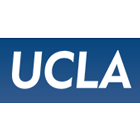Neurological diseases and injuries are among the most debilitating medical conditions affecting millions of people each year. Few effective treatments for these disorders currently exist, in part because we know very little about the mechanisms underlying these conditions and how to prevent or repair neural damage. The Neural Development, Degeneration, and Repair FAR seeks to tackle this problem by providing training in three main areas: 1) Elucidating the cellular and molecular mechanisms that establish neural circuitry during embryonic and postnatal development, 2) Exploring mechanisms of aging and neurodegeneration caused by injury or diseases, and 3) Exploring ways in which neural tissue damage can be prevented or repaired. The Neural Development, Degeneration, and Repair FAR will draw upon the broad expertise at UCLA in the areas of stem cell differentiation, neural development, neurodegenerative diseases, plasticity and restoration of function after injury to the central nervous system. The faculty associated with the FAR includes basic and clinical scientists, many of whom bridge the gap between the laboratory and advances in therapies for neurodegenerative diseases such as Alzheimer's, Parkinson's, and Huntington's, as well as brain and spinal cord injuries. The Neural Development, Degeneration, and Repair FAR curriculum includes training in broad areas of cellular, molecular and system neuroscience, completed with specialized courses in Neural Development, Degeneration, and Repair, a weekly journal club focused on the current literature, weekly presentations by trainees and faculty, and seminars from renowned investigators in the field. Students are encouraged to explore areas at the junction of multiple fields, to use multiple technical approaches, and to engage in collaborations between laboratories. The Neural Development, Degeneration, and Repair FAR also will build upon the success of their NIH-sponsored Training Program in Neural Repair. The goal is to train a cadre of young investigators that are fully prepared for the changing culture of science while retaining a solid background in their main area of expertise.





